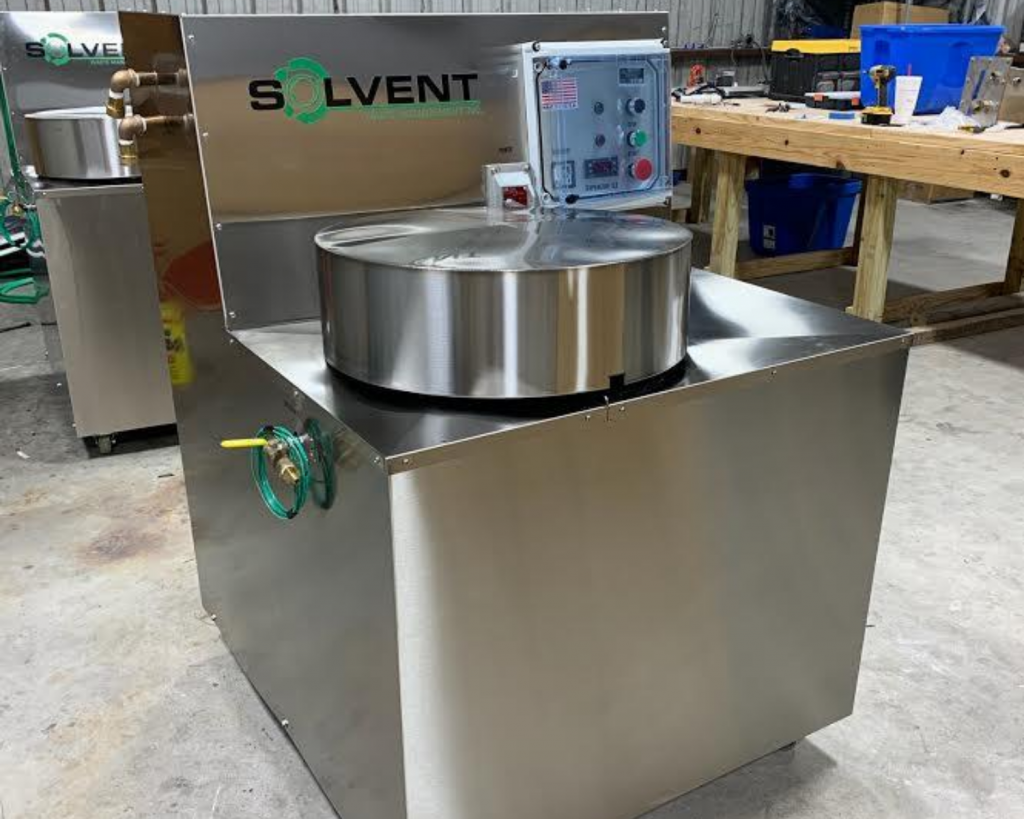If you are an industry owner, you are always trying to make smarter choices to attain more sustainability in your business. As a conscious human of the twenty-first century, you would also ideally be careful about the environmental impact of your manufacturing process. If you are looking for a single solution fulfilling both purposes, using solvent recycling equipment would be the best fix!
Why Solvent Recycling?
Businesses generate tonnes of waste on a regular basis, which can be reduced by having an effective recycling plan in place. Recycling is critical to achieving sustainability and lowering a product’s environmental impact. It can greatly aid in the process of making the best use of resources and reducing waste generation. Furthermore, the benefits of solvent recycling are significant not only at the community and individual levels but also at the business level.
However, careful consideration of a few essential factors can help you select solvent recycling equipment that ideally suits your requirements. You should think about the below-mentioned questions before choosing recycling equipment.
How Much Recyclable Material Does Your Company Have?
Your decision will primarily depend on the particular needs of your business. Every business has a unique need, so before making a choice, it is critical to carefully evaluate your needs. You must be clear about how much waste you plan to recycle each week and select the tools that will work best for your strategy.
What is the Equipment’s Efficiency?
Analyzing the investment’s efficacy and overall efficiency is necessary for it to be profitable. The equipment must meet your company’s needs and provide financial advantages.
How Long Will the Recycling Equipment Last?
Be sure to ascertain the solvent recycling equipment‘s lifespan before making a purchase decision. You must understand the equipment’s capacity and the duration for which it can operate. You can select the most suitable equipment if you have accurate information about any potential repairs and part replacements beforehand.
What Safety Features Does the Machinery have?
Safety is of the utmost importance, especially if your company processes hazardous materials. To provide safe working conditions for your team, the equipment you select must have the necessary safety features.
Does the Device have the Ability to Separate Byproducts?
There are many types of solvent recycling equipment available, but choosing one that can separate by-products will ensure you get the best result. The purity of the finished product may suffer if some valuable by-products are not separated.
Are Replacement Parts for the Equipment Readily Available?
It is crucial to be prepared to handle any unexpected breakdown and address problems as soon as possible. Verify whether replacement parts are readily available and whether there are contractors who can repair damages quickly.
Is the Business’s Customer Support Staff Competent?
In addition to making sure you choose the best solvent recycling equipment, it’s critical to understand the level of customer service the business provides. You can narrow down your search for the best provider by doing some research and reading customer reviews.
How Much Labor do You Need to Operate the Machinery?
You must keep the cost and resource utilization factors in mind for your business to succeed. An automated system can reduce labor requirements and improve the efficiency of your equipment operation.
How to Determine the Size of the Machine Your Company Needs?
Because it depends on so many different factors, this question is challenging. Therefore, you must consult with the recycling equipment specialists who will examine your operation and help you select the best system. You can get in touch with the experts at the company from where you will be buying the machine.
Is there any Regulatory Concern with the Recycler?
Both no and yes. Keep in mind that, while hazardous waste storage is regulated, the recycling process is exempt from RCRA regulations, so no permits are required for the Recycler. You must still treat the waste in accordance with RCRA regulations. When installing any solvent recycling equipment, there are fire codes that you must follow.
Are There Risks of Producing Hazardous Waste When Using a Solvent Recycler?
No, if the materials were not already hazardous. The recycled solvent and waste are the only two products of the recycling process. You are not developing a new product, nor are you addressing the solvent’s issues.
Is Special Knowledge Required to Operate the Recycler?
Not really, a relatively inexperienced person can operate the recycler. However, solvent recycling equipment from a reputable brand always comes with an operator’s manual.
Conclusion
Consideration of the aforementioned factors can assist you in selecting the best equipment for your business. But, if you need cost-effective solvent recycling equipment from a reputable company, you need to do good research.
There are compaction and baling solutions that can contribute significantly to efficient recycling and waste management. Choose from a comprehensive range of products designed to meet the challenges of waste handling in various industries. If you need more information, keep an eye on this space as we post fresh, informative content regularly.
About Solvent Waste Management
Since 1994, Solvent Waste Management, Inc. has assisted many companies in a variety of different industries not only improving their operations but also reducing costs.
Solvent Waste Management Inc. designs and manufactures solvent distillation equipment that cleans contaminated solvents, allowing users to restore and continuously reuse solvents – thereby saving money on the cost of disposal and the cost of new solvents.

Model SW8 Solvent Recovery System
Model SW30 Solvent Cleaning Machine
Model SW55 Solvent Recycler Machine
Model SW70 Solvent Recovery Equipment
Solvent Waste Management designs and manufactures solvent recycling equipment that cleans contaminated solvents in such a way that the customer can reclaim and reuse solvents again and again, thus saving on both the cost of solvent disposal and the cost of new materials.

